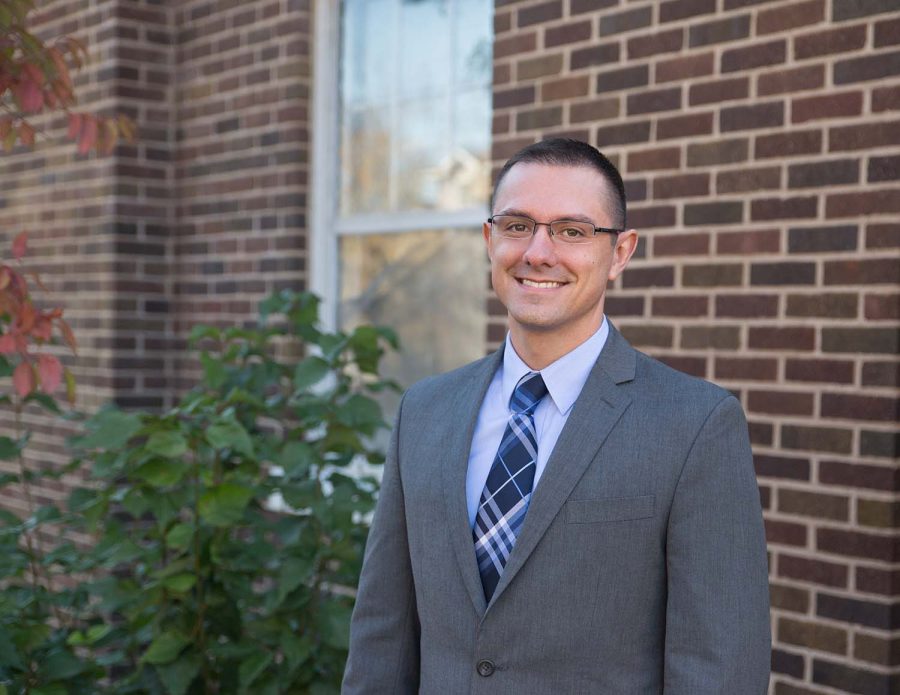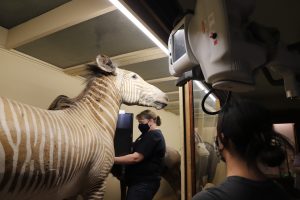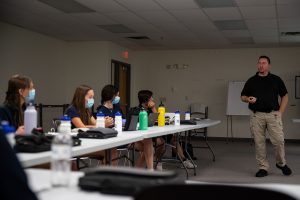Spring UI courses to offer new community partnership designation
Starting in the spring, certain classes will have a new designation indicating those that will interact with the outside community.
October 3, 2021
University of Iowa students can expect new courses related to community engagement and partnerships beginning spring 2022.
The UI community-engaged course designation, available for students on MyUI beginning Oct. 8, identifies classes that work with partners in the community to link UI courses with communities in Iowa City and beyond.
Peter Gerlach, adjunct assistant professor in the UI international studies program, said he will run a community-engaged course next semester under the new designation. The course will partner with the Refugee and Immigrant Association, a non-profit organization based in Iowa City and founded mostly by refugees from central Africa.
He said he likes the new designation because it allows students to easily identify opportunities for unique community-learning experiences through courses like his.
“How often are one of your classes held in City Hall, and how often do you get to ask a very pertinent, relevant question to elected officials in the class that you’re taking?” Gerlach said. “It’s not terribly common.”
He said his course involves engaged learning with refugees and immigrants in Iowa and will provide students with experiences interacting with and hearing from migrants who share their stories.
“Where I think the course has its most depth is in the first-hand accounts and working directly with refugees and immigrants,” Gerlach said. “We invite a lot of guests to the class.”
Gerlach said he will bring in experts from the UI and statewide experts like Mak Sućeska, Iowa’s Refugee Services Bureau chief.
Gerlach said guests will help make the course much less traditional than other offerings. At the beginning of the semester, students are often hesitant to take his course, he said, because of how dramatically different it is from almost all others the UI offers.
By the end of the course, he said, students are glad they decided to take it.
“You’re not writing a final paper, you’re not taking an exam,” Gerlach said. “In fact, the work that you are doing is preparing you to support an organization that exists in real life [and] has real needs.”
Nick Benson, executive director of the UI Office of Community Engagement, said the creation of the new designation was driven by students.
“I think, over the past few years, students have certainly indicated that this is an interest of theirs,” Benson said. “I would say students are really the driving impetus behind this course designation.”
Benson said the designation provides students with the ability to understand what a particular community-engaged course is as they enroll.
“Both students and faculty, and community partners benefit from the work that is done as part of the community engagement class,” Benson said. “That starts with understanding community needs and also understanding course learning objectives, and community-engaged classes meet at the center of those two things.”
Noel Mills, a UI graduate student and assistant for the Office of Community Engagement, said these courses help students gain valuable, hands-on experience in the community.
“These experiences are experiences that you can talk about on your resume, [and] in job interviews,” Mills said. “They’re experiences that you can reflect on and use in your career. I’m not discounting other classes, but having a community-engaged course experience is so much more than just about getting the grade or getting the credit.”
She said part of the mission of the community engagement office is to get students out of the classroom and help them engage with the community in mutually beneficial ways.
She added that she believes developing community-engaged courses can be a way for institutions like the UI to set themselves apart and provide unique and beneficial experiences for students.
“We need to be able to offer experiences to students like community-engaged courses where we have specific value at the University of Iowa that you can’t get other places,” Mills said. “I see it turning into something that we’re really proud of.”





